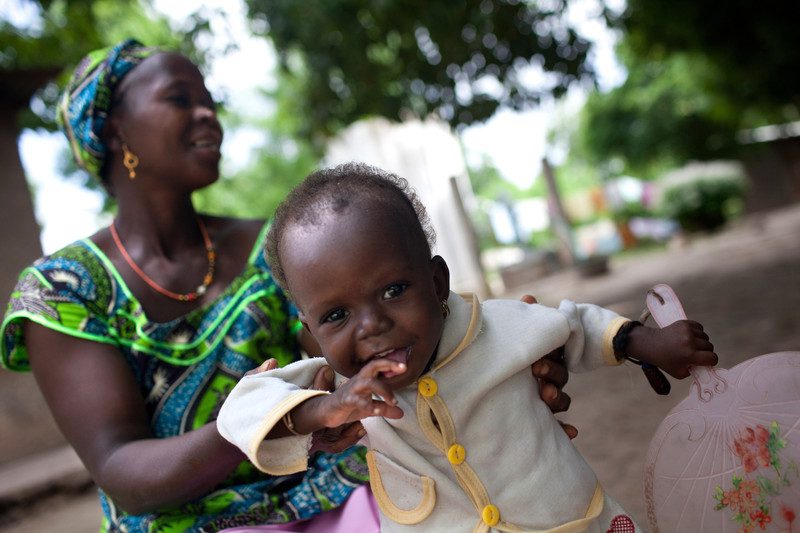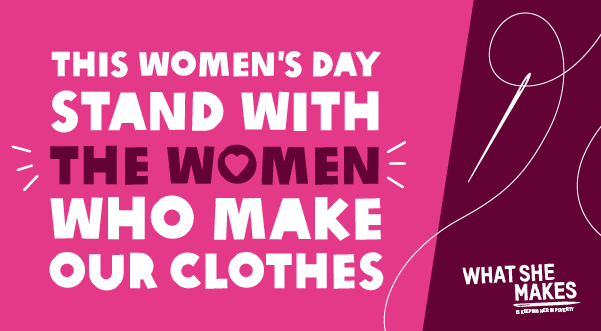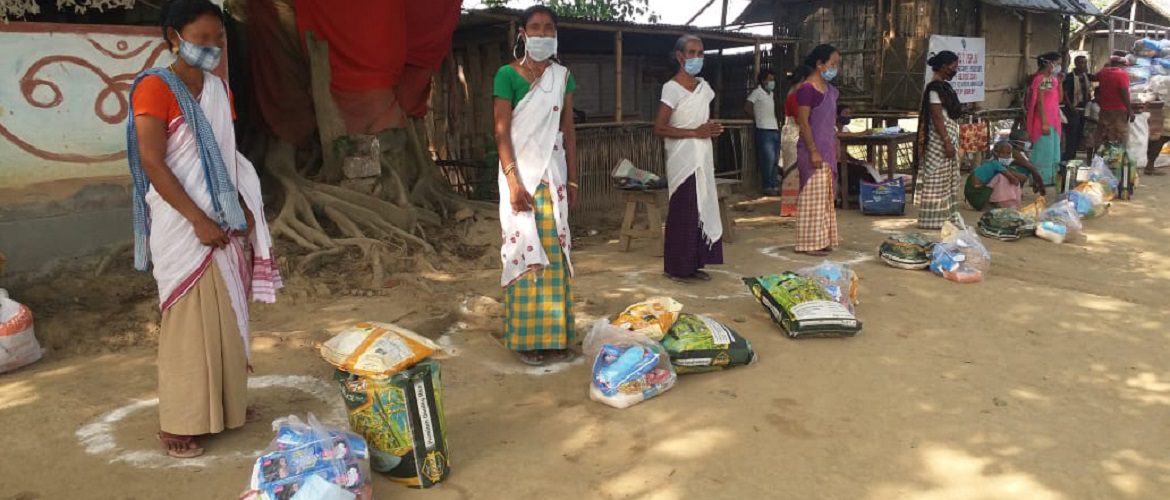By Elizabeth Stevens
Oxfam America’s Elizabeth Stevens and Holly Pickett noticed a powerful force at work in this emergency when they were in Senegal recently: the bond between mothers and children.
As photographer Holly Pickett and I travelled around the region of Kolda, Senegal, we noticed a powerful force at work in this emergency: the bond between mothers and children.
Fatoumata Dioum, the mother of two sons and two daughters, expressed the way that connection amplifies the pain of privation: “My only concern is how to buy food for my children. All the time, I’m worrying about food. When I go to bed, I worry about food. When I get up in the morning, I worry about food.”
But Holly and her camera captured something more: for many of the families caught in this crisis, the mother-child relationship also looks like one of the places where hope resides.
Staying close
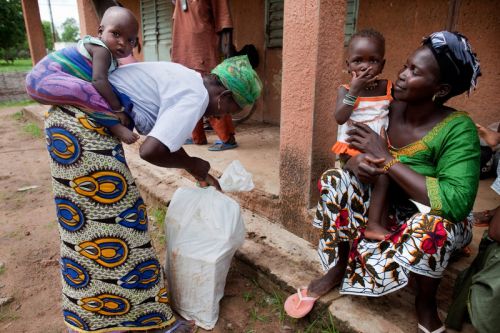
Sintaiero Jamaka (left) and Sira Mane (right) and their small children, after receiving hygiene kits in the village of Fafacourou. The mothers we met stayed in close contact with their young children.
Baby on board
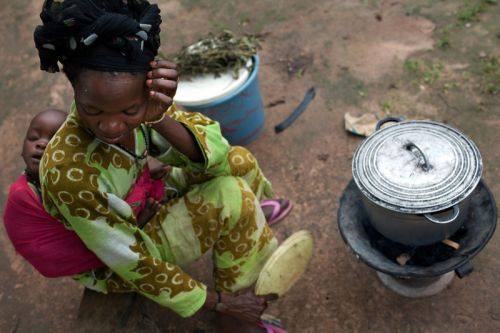
Food vendor Dado Sade cooks the evening meal with her baby, Dauda Mballo, on her back. “If I haven’t anything for the children to eat, I go to another home and ask for food. If they have rice prepared, we give it to the children. Between the women, this is okay.” Oxfam’s cash programs are intended to provide indirect benefits to vendors like Sade, who depend on the market for their living.
A mother’s comfort
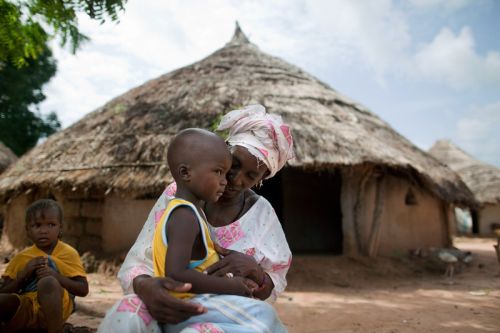
Adama Diallo, a participant in our cash program, comforts her son. “It is difficult to see the children go hungry. You cannot feed them. They think it is because you are refusing to give them food.”
Bonding
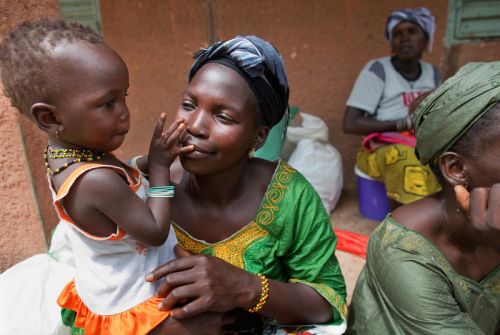
Sira Mane takes time to connect with her child at a hygiene kit distribution in the village of Fafacourou.
Recovering
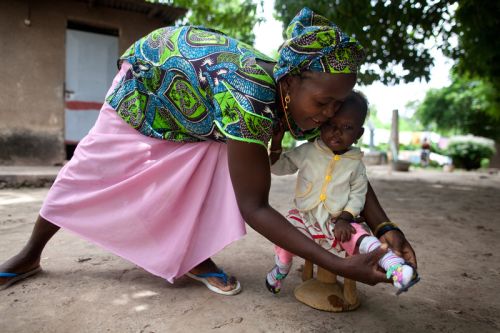
A mother cares for her daughter, who is recovering from severe malnutrition in an emergency feeding centre run by a Catholic mission. Our programs are aimed at preventing food shortages from becoming health emergencies like this.
Double the hugs
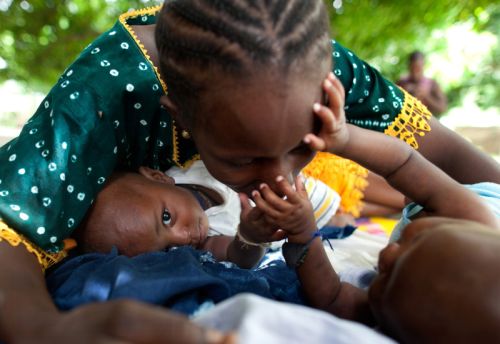
Though they have no mother of their own, orphaned twins at the feeding centre receive kind attention from a caregiver.
Originally published on the Oxfam America website
Find out more
Read about actress Bonnie Wright’s visit to Senegal with Oxfam
Learn more about Oxfam’s response to the food crisis in West Africa
